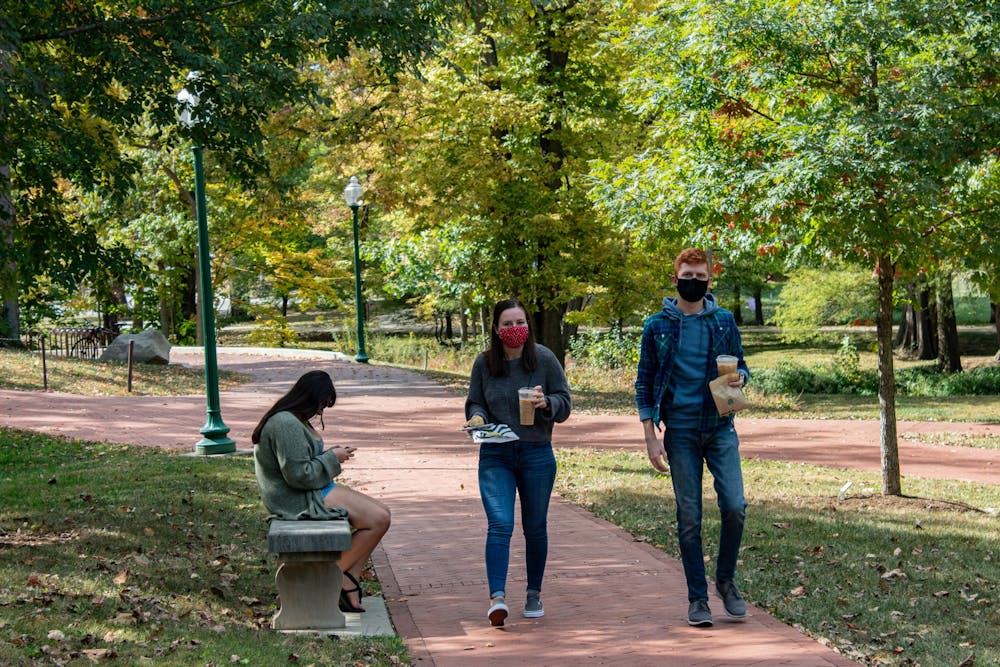With the spring semester starting, students are beginning to experience mental stressors of online schooling such as Zoom fatigue and feelings of social isolation.
People with a prior history of anxiety, depression and post traumatic stress disorder are at a higher risk of experiencing stress during the pandemic, according to the Traumatic Stress Research Consortium, a research initiative within the Kinsey Institute. Kinsey Institute scientists have been tracking people’s stress levels during the pandemic beginning in March.
Jacek Kolacz is a research scientist at the Socioneural Physiology Lab and is a member of the TSRC at the Kinsey Institute. Kolacz said there has been an increased risk of anxiety and depression during the pandemic, which tends to accelerate during the winter months even in years without a pandemic.
[Related: A list of mental health, addiction, abuse resources to access from home]
With the cold weather, many students do not want to go outside to safely socialize, so they report feeling increasingly isolated, Kolacz said. IU has many classes online, so students don’t have that outlet for interaction either.
To avoid feeling isolated, Kolacz recommends video chats and calls on a daily basis with family and friends.
“Remember to take some time to connect and be social with the people that you know, that are part of your social network, that are part of your life and help you feel like you're part of something,” he said.
Kolacz also said he recommends students who are doing online work or schoolwork get in contact with IU Counseling and Psychological Services .
Doctoral student Jingjing Han researched the effects Zoom can have on people. She said her research focused on Zoom fatigue, — the feeling of burnout and exhaustion associated with the frequent use of Zoom.
Han said users respond better in Zoom meetings because they can still observe peoples’ emotions and body language. However, she said attending multiple Zoom sessions a day can be mentally exhausting.
“We are probably mentally trying very hard to achieve that high level of communication success,” Han said.
Han said she recommends students stay connected with others through phone calls, rather than Zoom calls to avoid mental exhaustion. She also said students should remember to move their eyes around during Zoom calls so their eyes won’t tire from focusing on one part of a screen.
“I sometimes look outside of my window, instead of really looking at the screen,” Han said. “So you want to switch between green places and other places, even look at different parts of your screen.”
The Centers for Disease Control and Prevention recommends taking breaks when working for long periods and meditating to cope with stress. The CDC also suggests taking breaks from news consumption because constant news intake can be upsetting and stressful.
Freshman Cierra Stith said one way she has been taking care of her mental health is writing in a gratitude journal each day.
“Each day before I go to bed, I write at least five things I’m thankful for that happened that day,” Stith said. “It helps me learn to appreciate the smaller things and not focus entirely on the bad things that happened.”
If students want to relieve stress by working out in a gym or taking a group exercise class, the Student Recreational Sports Center will open Feb. 7, and the Bill Garrett Field House will open Feb. 10 with accommodations for social distancing.
If a student’s symptoms become serious, there are hotlines available for help including the
The Disaster Distress Hotline, National Domestic Violence Hotline and the National Suicide Prevention Hotline.




